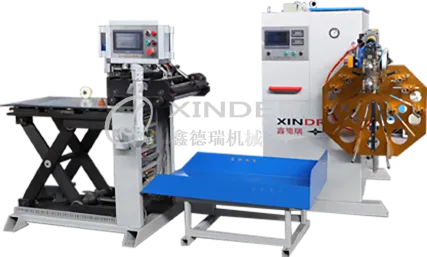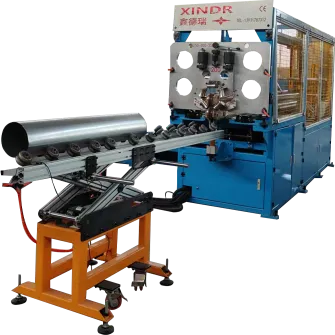-
 8613931787312
8613931787312 -
 Botou Industrial Zone on the east side of National Highway 104, Botou City, Hebei Province
Botou Industrial Zone on the east side of National Highway 104, Botou City, Hebei Province
- Afrikaans
- Albanian
- Amharic
- Arabic
- Armenian
- Azerbaijani
- Basque
- Belarusian
- Bengali
- Bosnian
- Bulgarian
- Catalan
- Cebuano
- Corsican
- Croatian
- Czech
- Danish
- Dutch
- English
- Esperanto
- Estonian
- Finnish
- French
- Frisian
- Galician
- Georgian
- German
- Greek
- Gujarati
- haitian_creole
- hausa
- hawaiian
- Hebrew
- Hindi
- Miao
- Hungarian
- Icelandic
- igbo
- Indonesian
- irish
- Italian
- Japanese
- Javanese
- Kannada
- kazakh
- Khmer
- Rwandese
- Korean
- Kurdish
- Kyrgyz
- Lao
- Latin
- Latvian
- Lithuanian
- Luxembourgish
- Macedonian
- Malgashi
- Malay
- Malayalam
- Maltese
- Maori
- Marathi
- Mongolian
- Myanmar
- Nepali
- Norwegian
- Norwegian
- Occitan
- Pashto
- Persian
- Polish
- Portuguese
- Punjabi
- Romanian
- Russian
- Samoan
- scottish-gaelic
- Serbian
- Sesotho
- Shona
- Sindhi
- Sinhala
- Slovak
- Slovenian
- Somali
- Spanish
- Sundanese
- Swahili
- Swedish
- Tagalog
- Tajik
- Tamil
- Tatar
- Telugu
- Thai
- Turkish
- Turkmen
- Ukrainian
- Urdu
- Uighur
- Uzbek
- Vietnamese
- Welsh
- Bantu
- Yiddish
- Yoruba
- Zulu
Feb . 15, 2025 21:05
Back to list
sheet metal bending machine price
Navigating the world of sheet metal bending machine pricing is crucial for manufacturers, fabricators, and hobbyists who aim to add this essential piece of machinery to their operations. The price of these machines is influenced by several factors, ranging from the technology embedded in the machines to their capabilities and the brand reputation. Understanding these nuances can help buyers make informed decisions that align with their production needs and budget constraints.
Brand reputation and after-sales support are other critical elements affecting the cost. Brands that have established themselves as leaders in manufacturing reliable, high-quality machines often price their products higher due to their reputational value and the comprehensive support they offer. Reliable after-sales service, including training, maintenance, and repairs, adds a safety net for the investment, ensuring that any downtime is minimized, which is particularly valuable for large-scale manufacturing operations where operational efficiency is crucial. Trustworthiness in the market is often built through certifications and adherence to industry standards, which can also influence machine pricing. Machines that comply with international safety and quality standards may be priced at a premium, but they offer assurance of compliance with regulatory requirements, which is crucial for businesses aiming to maintain a high standard of production quality. Finally, the market trends and economic conditions can also affect pricing. Innovations in technology, such as increased automation and integration with digital manufacturing ecosystems, can lead to both temporary price increases and long-term cost benefits. Purchasing decisions should therefore consider the timing and the long-term strategic needs of the business. In conclusion, the price of a sheet metal bending machine is a complex interplay of technology, quality, brand reputation, and market conditions. Buyers are advised to assess their specific production needs, evaluate the total cost of ownership beyond mere price tags, and choose a machine that aligns with their strategic goals. Investing wisely in this equipment can be a pivotal factor in achieving both operational efficiency and improved production outcomes.


Brand reputation and after-sales support are other critical elements affecting the cost. Brands that have established themselves as leaders in manufacturing reliable, high-quality machines often price their products higher due to their reputational value and the comprehensive support they offer. Reliable after-sales service, including training, maintenance, and repairs, adds a safety net for the investment, ensuring that any downtime is minimized, which is particularly valuable for large-scale manufacturing operations where operational efficiency is crucial. Trustworthiness in the market is often built through certifications and adherence to industry standards, which can also influence machine pricing. Machines that comply with international safety and quality standards may be priced at a premium, but they offer assurance of compliance with regulatory requirements, which is crucial for businesses aiming to maintain a high standard of production quality. Finally, the market trends and economic conditions can also affect pricing. Innovations in technology, such as increased automation and integration with digital manufacturing ecosystems, can lead to both temporary price increases and long-term cost benefits. Purchasing decisions should therefore consider the timing and the long-term strategic needs of the business. In conclusion, the price of a sheet metal bending machine is a complex interplay of technology, quality, brand reputation, and market conditions. Buyers are advised to assess their specific production needs, evaluate the total cost of ownership beyond mere price tags, and choose a machine that aligns with their strategic goals. Investing wisely in this equipment can be a pivotal factor in achieving both operational efficiency and improved production outcomes.
Latest News
-
The Rise of Laser Welding in Global Manufacturing: Spotlight on China’s Competitive EdgeNewsJun.05,2025
-
The Power of Precision: Exploring the Role of Automatic Seam Welding Machines in Modern ManufacturingNewsJun.05,2025
-
The Essential Guide to Can Welding Machines: Revolutionizing the Packaging IndustryNewsJun.05,2025
-
Resistance Welding Equipment: A Smart Investment for Industrial ManufacturingNewsJun.05,2025
-
Precision Welding for Modern Manufacturing: The Rise of Automatic Seam Welding MachinesNewsJun.05,2025
-
Laser Welding for Stainless Steel: The Precision Edge in Modern Metal FabricationNewsJun.05,2025
-
The Modern Evolution of Barrel Production: Technology, Machines, and Market PricingNewsMay.22,2025
related products
-
 Pneumatic Handle Welding MachineSep . 13, 2024
Pneumatic Handle Welding MachineSep . 13, 2024 -
 Fully Automatic Kaiping Production LineOct . 17, 2024
Fully Automatic Kaiping Production LineOct . 17, 2024 -
 Fully Automatic Metal Bucket Lifting HeadphonesSep . 14, 2024
Fully Automatic Metal Bucket Lifting HeadphonesSep . 14, 2024

